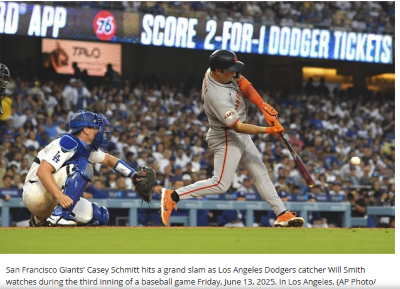
The June 2016 issue of The Atlantic contains two articles relevant to the present discussion about the lack of cognitive abilities of the current President of the United States. The two articles are:
“How Kids Really Succeed,” by Paul Tough
“The Mind of Donald Trump,” by Dan P. McAdams.
The two articles in the same hard copy magazine were not written as part of a single assignment. It is only by chance that the initially separate articles are juxtaposed.
This post will consist of excerpts from the two articles plus some comments of my own. The excerpted portions will not be highlighted in any way. The traditional academic apparatus of endnotes, footnotes, quotation marks, indentation, single spacing will not be adhered to. Instead it will be up to you Dear Reader to determine the origin of the material. While the combined text may not make for the smoothest of blogs, it should suffice to make its case.
NONCOGNITIVE SKILLS
Researchers concerned with academic-achievement gaps have begun to study with increasing interest and enthusiasm, a set of personal qualities― often referred to as noncognitive skills, or character strengths. These noncognitive skills tend not be measured in school performance but they often are the defining characteristics of an individual.
As brainy social animals, human beings evolved to be consummate actors whose survival and ability to reproduce depend on the quality of our performances. As Michael D’Antonio writes in his recent biography of Trump, Never Enough, Tom Griffin’s, owner of the Menie Estate near Aberdeen, most vivid recollection of the evening’s negotiations in 2006 pertains to the theatrics. It was as if the golden-haired guest sitting across the table were an actor playing a part on the London stage. “It was Donald Trump playing Donald Trump,” observed Griffin. The same feeling perplexed Mark Singer in the late 1990s when he was working on a profile of Trump for The New Yorker. Singer wondered what went through his mind when he was not playing the public role of Donald Trump. More than even Ronald Reagan, Trump seems supremely cognizant of the fact that he is always acting.
How does a person come to be an actor who is always performing? Where the stage name becomes the permanent name because the person is always on stage? A large and rapidly growing body of research shows that people’s temperament, their characteristic motivations and goals, and their internal conceptions of themselves are powerful predictors of what they will feel, think and do in the future. Narrowing the focus to the realm of politics, psychologists have recently demonstrated how fundamental features of human personality—such as extroversion and narcissism—shaped the distinctive leadership styles of past U.S. presidents. The question before We the People with this president is “Is there any there there?” Is he an act with no substance? Or how did he get to be the person that he his?
The most important force shaping the development of these noncognitive skills turns out to be a surprising one: stress. Over the past decade neuroscientists have demonstrated with increasing clarity how severe and chronic stress in childhood―what doctors sometimes call toxic stress―leads to physiological and neurological adaptations in children that affect the way their minds and bodies develop and, significantly, the way they function in school.
Fred Trump raised his sons to be tough competitors because if you were not vigilant and fierce, you would never survive. Trump writes, “I wanted to be the toughest kid in the neighborhood.” Children rely on responses from their parents to help them make sense of the world. More than any other experiences in infancy, these rudimentary interactions called “serve and return” between the parents and the child trigger the development and strengthening of connections among the regions of the brain that control emotion, cognition, language, and memory.
Trumps’ own narrative tells this story. The first chapter as he tells it today, expresses nothing like Bush’s gentle nostalgia or Obama’s curiosity. Instead it is saturated with a sense of danger and a need for toughness. The world cannot be trusted, it is one of toxic stress. Warrior narratives have traditionally been about and for young men. Now in the eighth decade of his life, Trump is still fighting his demons.
Stress can disrupt development of what are known as executive functions. In childhood, and especially in early childhood, this intricate stress-response network is highly sensitive to environmental cues. A highly sensitive stress-response system constant on the lookout for threat can produce patterns of behavior that are self-defeating in school. Toxic stress impedes mature development.
Narcissism stems from a deficiency in early-life mirroring. The parents fail to lovingly reflect back the young child’s own budding grandiosity, leaving the child in desperate need of affirmation from others. Ever since grade school, Trump has wanted to be No. 1. His need to excel may have crowded out by making it impossible for him to show the kind of weakness and vulnerability that true intimacy typically requires. Not only is he incapable of sympathy and empathy, he considers such emotions the signs of a loser.
TEACHING NONCOGNITIVE SKILLS TO TOXIC-STRESSED STUDENTS
An influential study on the long-term effect of a stressful early home life identified 10 categories of childhood trauma. An elevated number has a negative effect on the development of a child’s executive functions and on her ability to learn effectively in school.
When teachers and administrators are confronted with students who find it hard to concentrate, manage their emotions, or deal calmly with provocation, they see them as kids with behavioral problems who need, more than anything, to be disciplined. Talking back and acting up in class are, at least in part, symptoms of a child’s inability to control impulses, de-escalate confrontations, and manage anger and other strong feelings. By his own account, Trump once punched his second-grade music teacher, giving him a black eye.
Trump said about his intimidating high school baseball coach, “Like so many strong guys, Dobias has a tendency to go for the jugular if he smelled weakness. On the other hand, if he senses strength but you didn’t try to undermine him, he treated you like a man.” Trump has never forgotten the lesson he learned from his father and from his teachers at the military academy: The world is a dangerous place. You have to be ready to fight. As he said in an interview in 1981, “Man is the most vicious of all animals, and life is a series of battles ending in victory or defeat.” There is no synergy. There is no “come let us reason together. There is no win-win. Every day is like another episode on a TV series Survivor where ultimately there can only be one winner.
People, especially those who have experienced significant adversity, are often guided by emotional and psychological and hormonal forces that are far from rational. There are limits to the effectiveness of rewards and punishments in k-12 education for young people whose neurological and psychological development has been shaped by intense stress. Straightforward systems are often especially ineffective.
The situation for such students is not hopeless. Spending a few hours each week in close proximity to a certain kind of teacher can change something about student’s behavior. The environment those teachers created in the classroom, and the messages that environment conveyed, motivated students to start making better decisions. In every school, it seemed, there were certain teachers who were especially good at developing cognitive skills in their students and other teachers who excelled at developing noncognitive skills. But the teachers in the second cohort were not being rewarded for their success with the students.
Trump apparently never had such teachers skilled in the ways of developing noncognitive skills. Or if he did, he was sufficiently set in his ways that nothing could change him. Today he is the same immature undisciplined child he was at age 13 when his father placed him in military school in the vain hope that he would become disciplined. General John Kelly is not his teacher and he readily acknowledges that he cannot change Trump.
THE DONALD
Across his lifetime, Donald Trump has exhibited a trait profile that you would not expect of a U.S. president: sky-high extroversion combined with off-the-chart low agreeableness. According to Barbara Res, who in the early 1980s served as vice president in charge of construction of Trump Tower in Manhattan, the emotional core around which Donald Trump’s personality constellates is anger. “He’s not faking it,” she said. Anger may be the operative emotion behind Trump’s high extroversion as a well as his low agreeableness. Anger can fuel malice, but it can also motivate social dominance, stoking a desire to win the adoration of others. Anger permeates his political rhetoric.
The broad social reputation Trump has garnered as a remarkably disagreeable person is based upon a lifetime of widely observed interactions. People low in agreeableness are described as callous, rude, arrogant, and lacking in empathy. The real psychological wild card is Trump’s agreeableness—or lack thereof. There has probably never been a U.S. president as consistently and overtly disagreeable on the public stage as Donald Trump. His public stage is always the professional wrestling arena, he is always on stage, and he is always playing the Donald.
People are mostly motivated not by the material consequences of our actions but by the inherent enjoyment and meaning that those actions bring us, a phenomenon called intrinsic motivation. Most people but not all people. For Trump, “It’s the hunt that I believe I love.” He is always spoiling for a fight. Remember that one of the signal results of toxic-stress exposure is a hyperactive fight-or-flight mechanism. The Republican candidates for president in 2016 never confronted Trump on his terms and he triumphed in the professional wrestling arena on which the nomination process was staged. The Democratic candidate for president in 2016 never confronted Trump on his terms and he triumphed in the professional wrestling arena on which the debates were staged. The former party of Lincoln rolled over like “a little girl” when he fired Mueller, never to stand up to him the way even high-school student Trump stood up to his baseball coach.
So who really is Donald Trump? What is behind the actor’s mask? I can discern little more than narcissistic motivations and a complementary personal narrative about winning at any cost. It is always Donald Trump playing Donald Trump, fighting to win, but never knowing why with the Republican Party, the United States, and the world paying the price.





